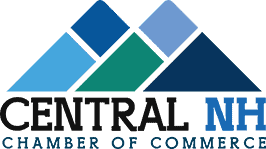Alexandria, NH Drug Rehab
In the past, New Hampshire has faced challenges related to substance use, particularly with opioids. The state has experienced higher-than-average rates of opioid overdose deaths compared to natural averages, according to the New Hampshire Drug Monitoring Initiative (1). Prevention, treatment, and harm reduction initiatives have addressed this crisis. As the community manages these issues, there is a crucial demand for comprehensive and effective rehabilitation services to address the root causes of substance use disorders and support those seeking recovery.
The Plymouth House is a trusted source in response to this urgent need. With a commitment to providing evidence-based treatment and a supportive environment, The Plymouth House stands ready to make a positive impact on the lives of individuals struggling with substance use. By offering a range of therapeutic services and a personalized approach to recovery, The Plymouth House aims to be a positive change in Alexandria, empowering individuals to reclaim their lives from addiction.
Addiction Treatment & Drug & Alcohol Rehab Center Near Alexandria, NH
If you or a loved one is seeking addiction treatment near Alexandria, New Hampshire, look no further than The Plymouth House. Our drug and alcohol rehab center offers a safe place for those on the path to recovery. Our approach goes beyond traditional methods, focusing on personalized care and evidence-based practices to address the unique needs of each individual.
At The Plymouth House, our commitment to personalized care entails a range of evidence-based practices for substance use disorder. Our treatment methods include cognitive-behavioral therapy (CBT), dialectical behavior therapy (DBT), and motivational interviewing (MI). These tailored approaches address the specific needs of individuals, fostering positive behavioral changes and addressing underlying issues contributing to addiction.
The journey to recovery begins with a comprehensive assessment at The Plymouth House. Our experienced team conducts thorough evaluations encompassing physical, psychological, and social aspects of an individual’s life. This holistic approach allows us to identify unique factors contributing to substance use and design tailored treatment plans.
The assessment process involves in-depth interviews, medical examinations, and psychological evaluations, providing a comprehensive understanding of the individual’s history and challenges. Through this meticulous process, we lay the foundation for personalized treatment, ensuring each person receives the support necessary for a successful and enduring recovery journey.
Drug Detox & Addiction Treatment Services Near Alexandria, NH
At The Plymouth House, your path to recovery begins with a personalized detoxification program guided by experienced professionals to ensure a safe and supportive environment during the initial stages of recovery.
Beyond detox, our addiction treatment services encompass evidence-based therapies, individual counseling, and group sessions tailored to address the unique needs of each individual. Located near Alexandria, our facility provides specialized treatment for those seeking a holistic and practical approach to healing substance use disorder. Trust in our dedicated team to guide you through a transformative journey toward lasting recovery.
We Are Here For You
Let Us Help You Heal
Our Drug & Alcohol recovery services are second to none.
Learn how we can help by speaking with one of our Treatment Advisors today.
Disorders & Addictions We Treat at Our New Hampshire Treatment Facility
The Plymouth House is a premier treatment facility that specializes in addressing a spectrum of disorders and addictions with compassionate care for those seeking recovery. Our comprehensive approach covers various substance use disorders, including prescription medications, alcohol, opioids, stimulants, benzodiazepines, and synthetic substances.
Our commitment to healing is evident in our tailored detoxification programs crafted to address the unique challenges associated with each substance. At The Plymouth House, our experienced team will guide you through a holistic and personalized recovery journey. We are dedicated to creating a supportive environment where individuals in Alexandria, New Hampshire, can reclaim their lives and discover lasting freedom from addiction.
Prescription Drug Detox
Individuals grappling with prescription drug dependence undergo a tailored detoxification process. Depending on the medication, prescription drug withdrawal can cause anxiety, insomnia, and physical discomfort. Medically supervised detox can help to reduce the severity of withdrawal symptoms and reduce the risk of life-threatening complications. Evidence-based therapies such as CBT also address underlying psychological factors contributing to dependence. Expect a supportive environment with medical supervision and personalized care.
Alcohol Detox
People with alcohol use disorder are at an increased risk of life-threatening complications from alcohol withdrawal. Detoxing from alcohol can cause anxiety, nausea, and even seizures in extreme cases. At The Plymouth House, our team of skilled professionals will oversee detoxification and use evidence-based interventions to manage symptoms and prevent complications, laying the groundwork for a successful recovery.
Opioid Detox
Opioid detoxification addresses symptoms such as muscle aches, nausea, and intense cravings. Evidence-based treatments include medications to manage symptoms and cravings and various therapies. The Plymouth House provides a compassionate and supportive environment for opioid detox, ensuring individuals receive the necessary medical attention and therapeutic support.
Stimulant Detox
Stimulant detox at The Plymouth House addresses symptoms like fatigue, depression, and increased appetite. Evidence-based programs, including behavioral therapies like contingency management, may be used to address underlying issues. Individuals undergoing stimulant detox can anticipate a comprehensive and structured approach, combining medical supervision with therapeutic interventions.
Benzodiazepine Detox
Abruptly stopping benzodiazepines can cause dangerous withdrawal symptoms. Medically supervised benzodiazepine detox uses medications and therapies to manage symptoms such as anxiety, insomnia, and seizures. Evidence-based programs may involve gradual tapering under medical supervision. The Plymouth House provides individualized care that ensures your safety and comfort.
Synthetic Drug Detox
For synthetic drug detox, symptoms vary widely depending on the substance. Evidence-based programs tailored to the specific synthetic drug may include a combination of medical interventions and therapeutic modalities. Individuals can expect a personalized approach at The Plymouth House, addressing the unique challenges associated with synthetic drug detox in a supportive environment.
Our Drug & Alcohol Treatment Services Include
Our Levels of Care for Substance Use Recovery
Different levels of care address the diverse needs of individuals throughout the recovery process. Specific challenges and requirements arise at each stage, necessitating a tailored approach. Many people begin treatment with a comprehensive assessment and personalized detoxification, then progress through intensive therapy sessions, group counseling, and individualized treatment plans. This tiered approach ensures that individuals receive the appropriate support and resources at each step, fostering an effective path toward recovery. The focus is on addressing unique challenges, promoting healing, and providing ongoing support for sustainable change.
- Detoxification Services — At the initial stage, detoxification services focus on the safe and monitored withdrawal from substances. Medical professionals employ evidence-based protocols to manage withdrawal symptoms and ensure a secure transition to the next phase of treatment.
- Inpatient Rehabilitation — Inpatient rehabilitation offers a structured environment with 24/7 medical supervision for those requiring a more intensive level of care. Evidence-based therapies, individual counseling, and group sessions address the symptoms of substance use disorders.
- Partial Hospitalization Program (PHP) – Partial Hospitalization Programs provide a step down from inpatient care, allowing individuals to receive comprehensive treatment during the day while returning to a supportive home environment in the evenings. This level of care ensures a balance between structured support and increased autonomy.
- Extended Care – Aftercare services include support groups, counseling, and community engagement to foster a network of continued encouragement and empowerment in maintaining a substance-free lifestyle.
Substance Use Treatment Therapies
Substance use treatment therapies play a pivotal role in the recovery journey, offering diverse approaches to address the complexities of addiction. Evidence-based therapies, such as cognitive-behavioral therapy (CBT) and Motivational Interviewing (MI), have demonstrated notable efficacy in promoting positive behavioral changes and addressing underlying issues.
Research published in the journal Psychiatric Clinics of North America supports the effectiveness of CBT, which focuses on changing patterns of thinking and behavior (2). CBT has been shown to reduce substance use and improve coping skills in people with substance use disorders.
Similarly, MI has been shown to enhance motivation, commitment to change, and feelings of encouragement to pursue and sustain recovery efforts, according to research published in the journal Drug and Alcohol Dependence (3). These evidence-based therapies form a foundation in substance use treatment, providing individuals with practical tools and strategies to navigate the challenges of addiction.
Drug & Alcohol Use Statistics in Alexandria, NH
In the past, New Hampshire has faced challenges related to substance use, particularly with opioids. According to the New Hampshire Drug Monitoring Initiative, the state has experienced higher-than-average rates of opioid overdose deaths compared to national averages (4). Prevention, treatment, and harm reduction initiatives have addressed this crisis.
A 2020 study published in the journal Drug and Alcohol Dependence looked at how people use opioids in New Hampshire (NH) and explored the various reasons behind the state’s opioid crisis (5). While participants agree that fentanyl is a significant cause of overdoses, the data shows there are many factors at play. People face challenges in telling heroin and fentanyl apart, and Fentanyl-Laced Heroin (FLH) comes into New Hampshire from nearby states.
The study also highlights how some individuals seek out fentanyl due to its lower cost and more potent effects. Barriers to harm reduction include limited access to naloxone and mixed opinions about fentanyl test strips.
Ready To Begin Your Drug & Alcohol Treatment?
We Offer A Safe & Effective Program
Don’t let Drug & Alcohol addiction control your life.
Call us today and let’s get you started on the path to a better you.
What to Look for in a Local Addiction Treatment Center Near Alexandria
When seeking a local addiction treatment center near Alexandria, it’s important to consider several factors to ensure the facility aligns with individual needs and provides practical, comprehensive care.
- Accreditation and Licensing — Look for an accredited and licensed treatment center. This ensures that the facility meets specific quality standards and adheres to best practices in addiction treatment.
- Experienced and Qualified Staff — Assess the qualifications and experience of the treatment center’s staff. A skilled and multidisciplinary team, including licensed therapists, medical professionals, and addiction specialists, enhances the quality of care.
- Evidence-Based Therapies — Ensure the treatment center utilizes evidence-based therapies tailored to individual needs. Therapeutic modalities such as Cognitive-Behavioral Therapy (CBT), Dialectical Behavior Therapy (DBT), and Motivational Interviewing (MI) have proven effective in addiction treatment.
- Individualized Treatment Plans — Look for a center that customizes treatment plans based on a thorough assessment of each individual’s unique needs. Personalized care enhances the likelihood of a successful recovery.
- Dual-Diagnosis Treatment — If there are co-occurring mental health issues, choose a facility that offers dual-diagnosis treatment. Addressing both addiction and mental health concerns contributes to a more comprehensive and lasting recovery.
- Aftercare Support — A reputable treatment center will provide aftercare and ongoing support. This may include support groups, relapse prevention strategies, and connections to community resources, ensuring sustained support post-treatment.
- Family Involvement — Consider a treatment center that involves the family in the recovery process. Family therapy and support can enhance outcomes by addressing relational dynamics and fostering a supportive environment.
- Location and Environment — Assess the location of the treatment center’s environment. A peaceful and supportive setting can contribute positively to the recovery experience, promoting calm and focus.
- Reviews and Testimonials — Read reviews and testimonials from individuals who have undergone treatment at the facility. This can provide insight into the center’s effectiveness and overall satisfaction for those who have sought help.
- Insurance Coverage — Check whether the treatment center accepts insurance and inquire about potential out-of-pocket costs. Understanding the financial aspect ensures clarity and avoids unexpected expenses.
Why Choose The Plymouth House for Your Recovery?
The Plymouth House ensures a commitment to quality and individualized care for people with substance use disorders. With accreditation and licensing, the facility meets rigorous standards, and its experienced staff, including licensed therapists and medical professionals, enhances the quality of care.
Incorporating evidence-based therapies such as cognitive behavioral therapy (CBT) and dialectical behavior therapy (DBT) reflects a commitment to proven methods. The emphasis on individualized treatment plans tailors the approach to unique needs, fostering a personalized path to recovery. Offering dual diagnosis treatment for co-occurring mental health issues, The Plymouth House ensures a comprehensive recovery journey.
With robust aftercare support, family involvement, a peaceful environment, positive reviews, and insurance acceptance, The Plymouth House stands out in your choice of treatment facilities. The Plymouth House will provide a compassionate and effective approach to addiction recovery.
Begin Healing Now!
Have A Call With One Of Our Treatment Advisors
Don’t Suffer Any Longer
Contact Us to Learn More
Contact us today if you are ready to begin a new way of life and commit to your healing journey. We begin by developing a plan of action, which starts with an initial pre-assessment. This assessment helps determine the appropriate level of care for each case. Contact us today for a free, no-obligation health insurance benefit check.
Get Started Now
Give us a call 24/7
(888) 693-1927















